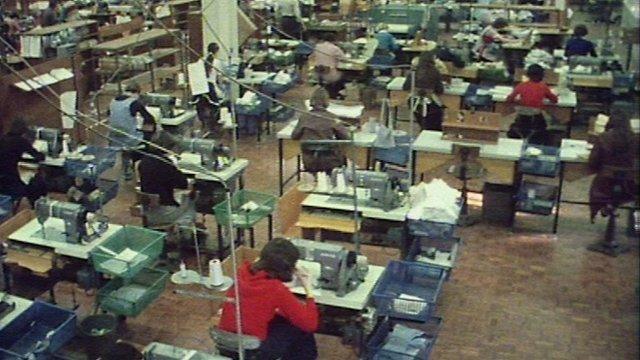Londonderry's factory girls celebrated with new mural
- Published
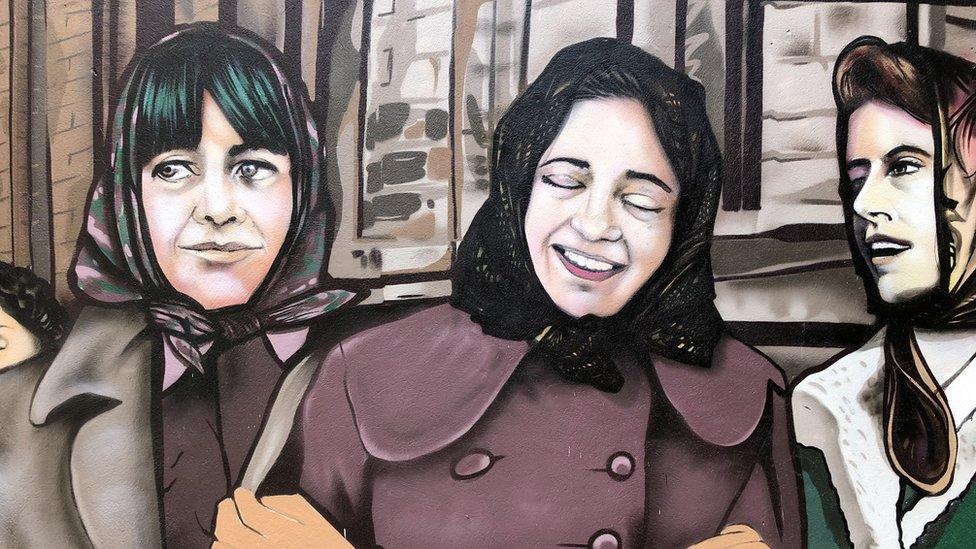
Joe Campbell designed the comic book-style mural
A new mural celebrating the legacy of Londonderry's factory girls has been painted in the city's Craft Village.
The artwork was designed by Joe Campbell and painted by UV Arts as part of a "proper Derry collaboration".
How to celebrate the city's once thriving shirt-making industry has been an issue of contention for years.
A previous sculpture to remember the women was shelved in October 2018 - a decision that led to the Inner City Trust commissioning this piece.
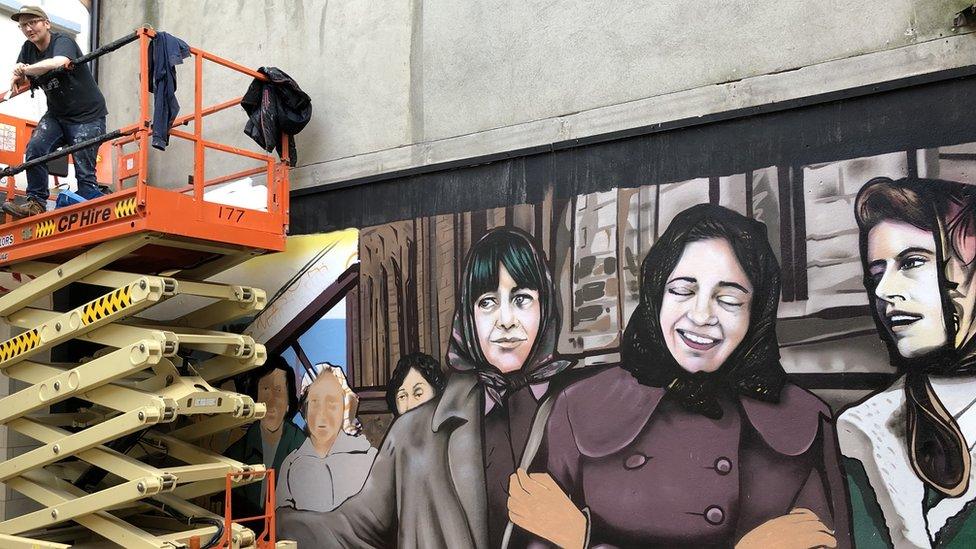
The Craft Village was chosen as the site due to it containing over 120 crafters
"There has been so much talk and so much controversy over the factory girls sculpture," said Helen Quigley, chief executive of the Inner City Trust.
"In the absence of anything appearing, and after a lot of years of discussion around it, we thought we would try and make an effort to show our appreciation to the factory girls.
"I think that they will be pleased at least that we are making an effort in a small, small way to show off their legacy."
'Makes my heart beat'
Mary Doherty, Clare Moore and Mary White all began working in the factories as teenagers and are still friends.
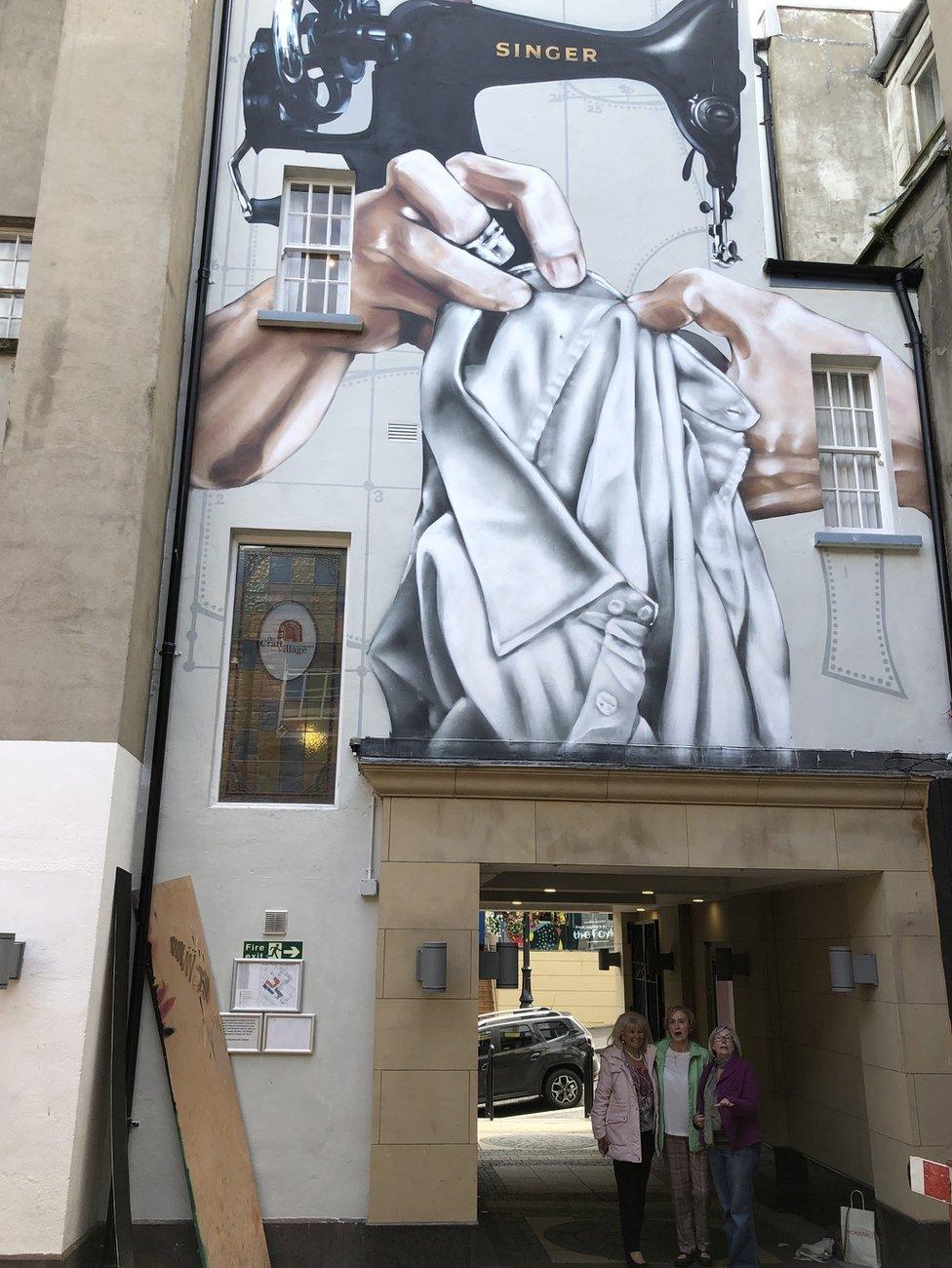
Mary White, Mary Doherty and Clare Moore see the factory girls mural for the first time
All three have been part of the campaign to create a sculpture for the factory girls, but welcomed the addition of a mural to the city.
"It's brilliant. It just makes my heart beat," said Mary White.
Seeing the sewing machine evoked memories of growing up for Mary Doherty.
"Seeing the Singer up there really brings it all back, that was the daily grind," she said.
But for Clare Moore, the image also reminded her of home life.
"The fact that they've got the shirt and little black Singer sewing machine up there is uncanny," she said.
"My mother had one of those and my sister has it now actually, it's just so realistic, wonderful to look at.
"I'm very appreciative that something has been put up for us to remind not only ourselves of the work we did, but to let other generations see how it was too."

What was the significance of Derry's factory girls?
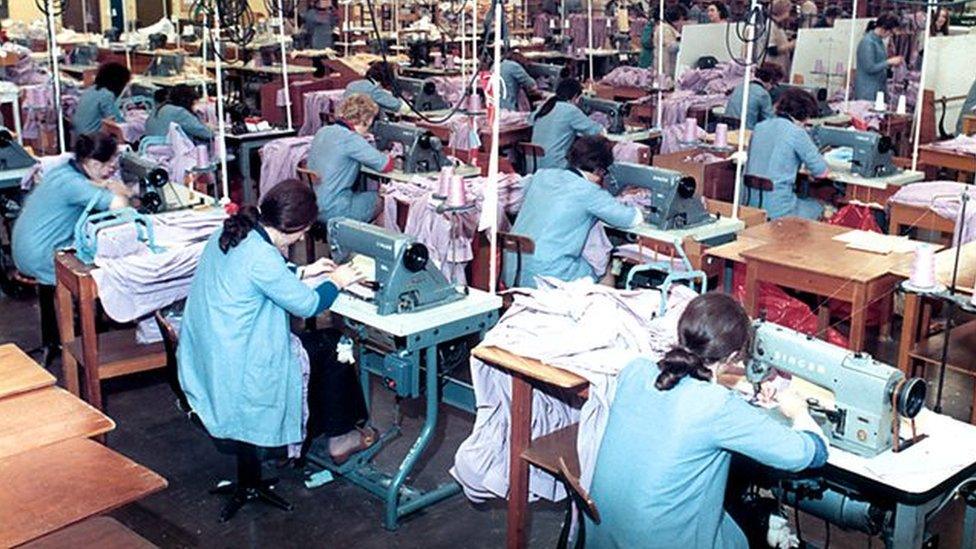
A female workforce powered much of the industrial development of Derry
Derry was historically a centre for shirt-making, with the industry developing from the late 19th Century.
The vast majority of those who did the job were women.
By the 1920s, there were more than 40 shirt factories employing thousands of workers, with thousands more servicing the industry from their homes.
There were still hundreds of people employed in clothing manufacturing up to the early 2000s.
However, the industry has since been all but wiped out in the face of global competition, with one of the last traditional handmade shirt makers in Britain and Ireland closing back in May.

'Massive nod to our heritage'
UV Arts were asked by the Inner City Trust to bring Joe Campbell's design to life on the Craft Village's walls.
The comic-book illustration of the working women and the photorealistic Singer sewing machine and hand-stitched shirt took days to complete.
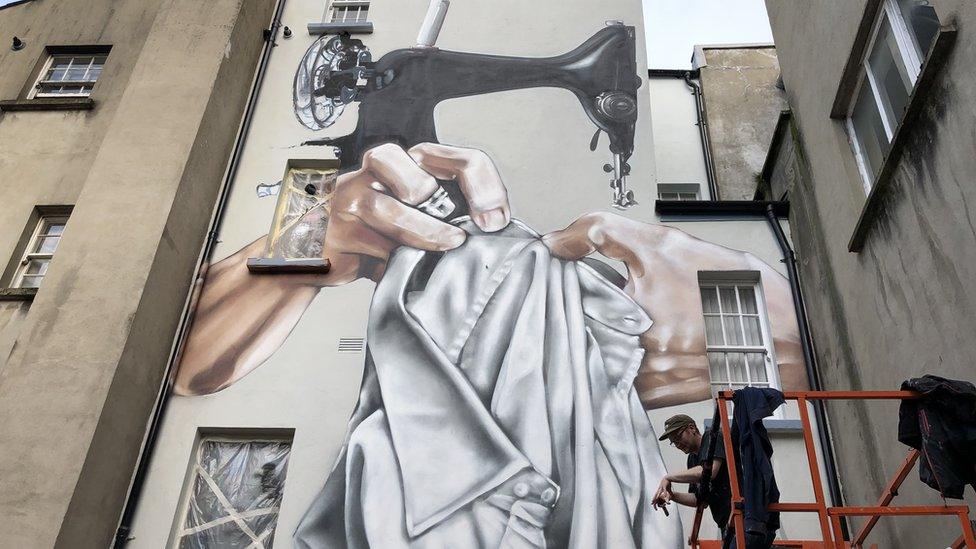
"They're the ones who kept the city alive," said UV Arts' Karl Porter
One of the group's artists, Karl Porter, was proud to take on the project due to his personal connection with the factory girls.
"It was a privilege to be approached and asked to paint this mural because it's a massive nod to our heritage, our families, our grannies and all the women who worked during the Troubles to keep the bread on the table.
"My granny used to work in the factories.
"She put the collars on, that was her job, for... I don't even know how long, but it was a long time.
"So it's kind of mad that I'm painting somebody hemming a collar, because that's essentially what she would have been doing at the factory," he added.
Why was the original sculpture commission shelved?
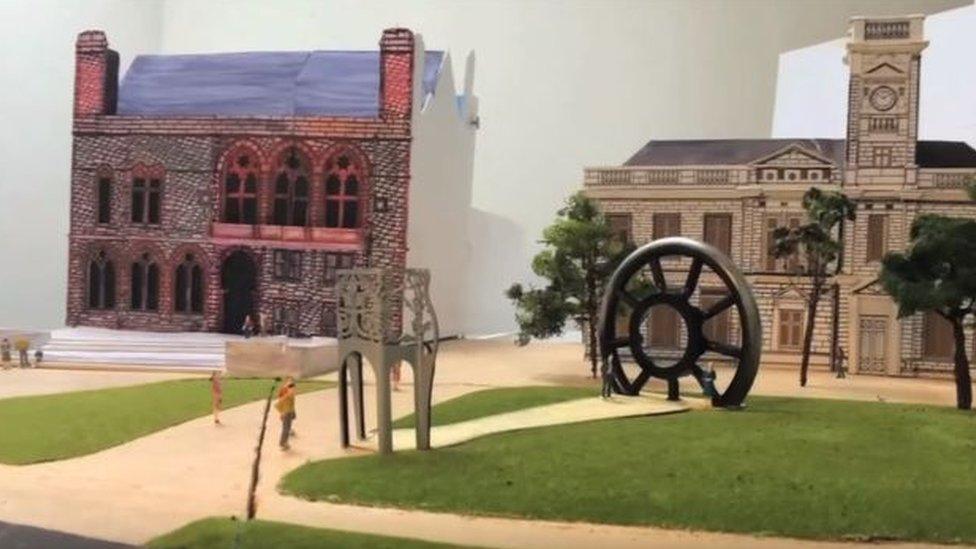
Artist Louise Walsh's model of the factory girls sculpture was presented to councillors in 2015
Louise Walsh was the artist who began creating the sculpture to remember the workers back in 2006.
The unfinished project had its share of ups and downs for more than a decade and in the end cost £85,000 of public money.
Derry and Strabane councillors were told last year that it would cost more than £330,000 to complete, so Stormont's Department for Communities - which originally funded the project - said it no longer represented value for money and the project was pulled.
However, Mrs Walsh is still pleased that the women who were ultimately her muse, will still be celebrated through art.
"It's great," she said.
"The Craft Village is a very good spot for it, so in a funny way I'm relieved and glad to see that work is going up and good things have come in relation to the shirt factory girls and the industrial history of the city.
"Broadly, people will feel that anything which commemorates them and draws attention to the huge contribution they made over hundreds of years is a positive, but I think at the very least, they'll feel there's something happening in recognition of them finally."
- Published8 March 2019
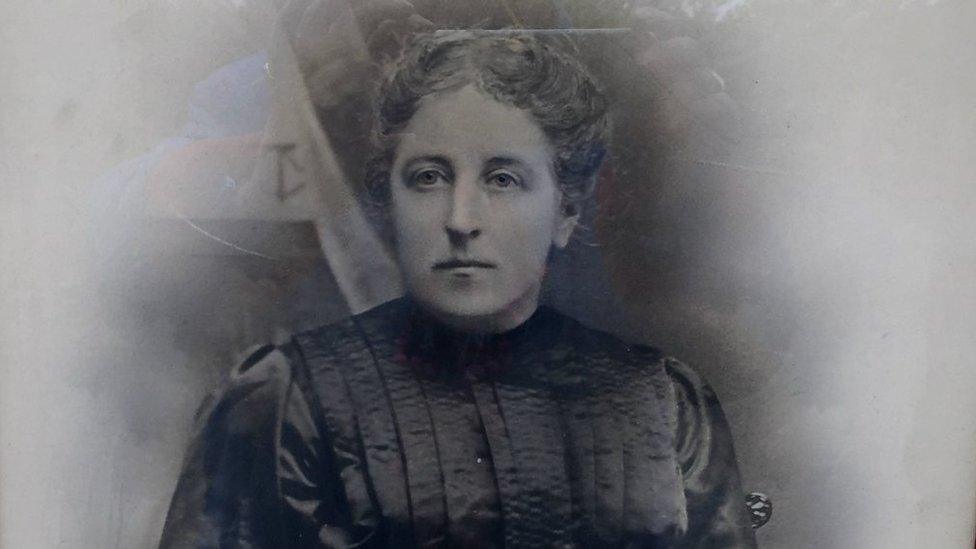
- Published12 February 2015
